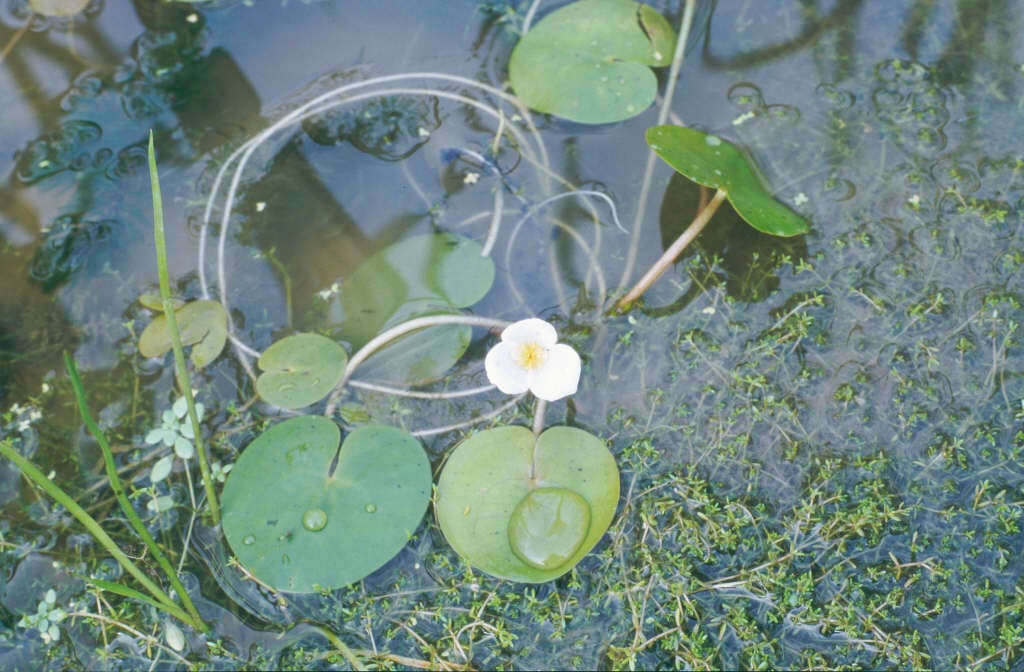Not the plant you're looking for? Search over 300,000 plants
Aquatic
Size
Ultimate height
Up to 10cmTime to ultimate height
5–10 yearsUltimate spread
0.5–1 metresGrowing conditions
Chalk
Clay
Loam
Sand
Moisture
Poorly–drainedpH
AlkalineColour & scent
| Stem | Flower | Foliage | Fruit | |
| Spring | Green | |||
|---|---|---|---|---|
| Summer | White Yellow | Green | ||
| Autumn | Green | |||
| Winter |
Position
- Full sun
Aspect
South–facing or West–facing
Exposure
Exposed or Sheltered Hardiness
H5Botanical details
- Family
- Hydrocharitaceae
- Native to GB / Ireland
- Yes
- Foliage
- Deciduous
- Habit
- Floating
- Genus
Hydrocharis can be submerged or floating aquatic perennials with glossy, rounded leaves and white, 3-petalled flowers in summer
- Name status
Correct
How to grow
Cultivation
Grow in still, alkaline water in full sun. Water must be deep enough to prevent bottom freezing to protect overwintering buds. See pond plants for further advice
Propagation
Propagate by seed or division of stolons
Suggested planting locations and garden types
- Low Maintenance
Pruning
No pruning required
Pests
May be susceptible to water snails and larvae of the brown china-mark moth
Diseases
Generally disease-free
Get involved
The Royal Horticultural Society is the UK’s leading gardening charity. We aim to enrich everyone’s life through plants, and make the UK a greener and more beautiful place.
